18 Important Health Benefits Of Beetroot + Nutrition Facts
Here's a root vegetable rich in essential nutrients that can delay the signs of aging and enhance your skin!
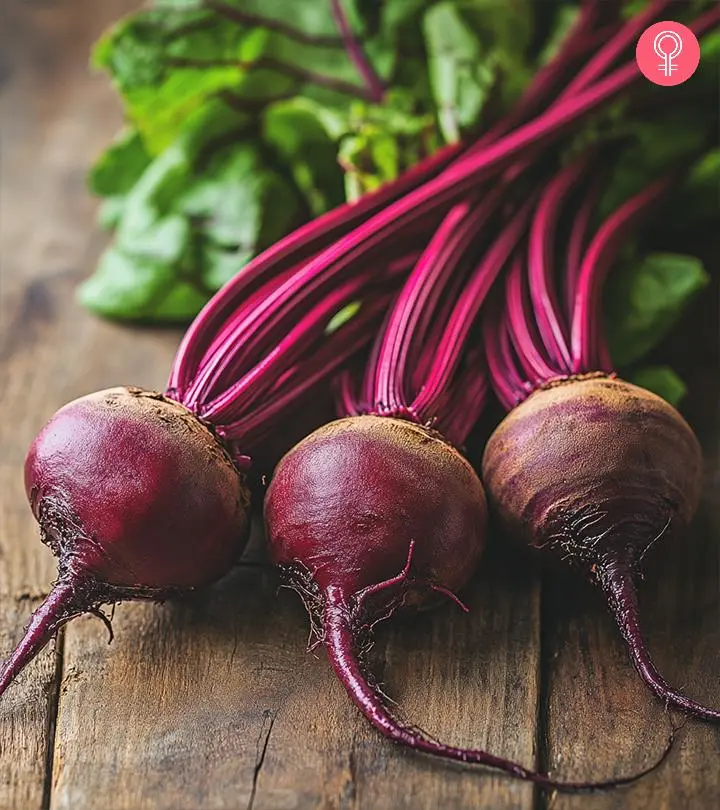
Image: Midjourney/ StyleCraze Design Team
Beetroot is also known as blood turnips and contains many essential nutrients. Historically, beetroots have been used as both food and medicine in many different cultures. This has made them a popular ingredient in both traditional and modern diets. The health benefits of beetroots have been widely researched. They may lower blood pressure levels, boost energy, and reduce inflammation. Their low sodium and fat content and the high folate content may support mental and emotional well-being. Vitamin K (good for blood clotting) and calcium (good for strong bones and teeth) are also present in beets (1). They are rich in dietary fiber and may promote weight loss. However, research has yet to confirm this. Furthermore, some experts believe that juice may improve your body’s ability to absorb nutrients. Scroll down to learn more about the benefits of beetroot, its nutritional profile, recipes, and risks.

The health benefits of beetroots have been widely researched. They may lower blood pressure levels, boost energy, and reduce inflammation.
Their low sodium and fat content and the high folate content may support mental and emotional well-being.
Vitamin K (good for blood clotting) and calcium (good for strong bones and teeth) are also present in beets (1). They are rich in dietary fiber and may promote weight loss. However, research has yet to confirm this.
Furthermore, some experts believe that juice may improve your body’s ability to absorb nutrients. Scroll down to learn more about the benefits of beetroot, its nutritional profile, recipes, and risks.
 Know Your Ingredient: Beetroot
Know Your Ingredient: BeetrootWhat Is It?
It is a pinkish-purple root vegetable consumed either cooked or raw.
What are Its Benefits?
It may improve blood pressure, reduce inflammation, promote detoxification, support brain health, and reduce the risk of chronic diseases.
Who Can Use It?
It is generally safe for those looking to improve skin, brain, and heart health, lower blood pressure and blood sugar levels.
How Often?
A cup of beets or 200-250 ml of beet juice per day is recommended.
Caution
Individuals prone to kidney stones may want to limit their intake of beetroot due to its oxalate content. It may cause discomfort in pregnant women.
In This Article
What Is Beetroot?
Beetroot is touted as one of the healthiest veggies. It is the taproot portion of the beet plant. It is one of the many varieties of the genus Beta vulgaris, all of which are mostly grown for their edible taproots and leaves. Apart from being used as food, beetroot is also used as a medicinal plant and a food colorant.
Right from the Middle Ages, beetroot has been used not only as food but also as a treatment for numerous conditions. It is popularly known as beet and is called Chukandar in Hindi, Remolachas in Spanish, and Hong cai tou in Chinese. Beets have been used for a long time as a treatment for anemia in Indian households.
 Trivia
TriviaKey Takeaways
- Beetroot contains sodium, fat, folate, vitamin K, calcium, and fiber that make it extremely healthy,
- The antioxidant properties of beetroot combat free radicals, provide photoprotection and delay signs of aging.
- Beetroot consumption prevents skin cancer. It contains vitamin A that maintains mucous membranes and vitamin C that helps in the synthesis of collagen.
- Beetroot contains nitrates that may lower blood pressure and reduce the risk of heart disease and strokes.
- Overconsumption of beetroot may increase oxalate levels in the body that may lead to kidney stones.
Health Benefits Of Beetroot
Check out some of the most talked-about beetroot benefits for health.
1. May Delay Signs Of Premature Aging
Beet greens contain vitamin A and carotenoids that can benefit you from inside out. They also contain a decent amount of lutein, another potent antioxidant. These fight free radicals and can play a role in human skin photoprotection (2). However, there is no direct research of beets delaying the signs of aging.
According to a Chinese study, sugar beet molasses has excellent antioxidant properties. The phenolic contents of sugar beet molasses demonstrate anti-aging properties (3).
2. Can Improve Skin Health
If you are wondering what are beetroot benefits for the skin, here’s your answer. Beetroot ingestion has been found to prevent skin cancer (4). Also, beets contain vitamin A that maintains healthy mucous membranes and improves skin health. Vitamin A also supports the daily replacement of skin cells (5).
Some believe that beetroot may also help purify the blood. This may promote skin health, though more research is warranted.
Beets are also good sources of vitamin C (1). Studies show that skin fibroblasts need vitamin C to synthesize collagen. Vitamin C also protects the skin from the harmful effects of UV radiation. Adequate vitamin C levels also minimize the formation of raised scars (6).
3. Can Be Beneficial During Pregnancy

There are many cultures across the globe that heartily believe in the health benefits of beetroots for females, especially during pregnancy. A study focused on the possibility of beets being beneficial for pregnant women, especially because of their nitrate content. However, more research is required in this matter (7).
Beets are also rich in folic acid, which is a very good reason for pregnant mothers to include them in their diet. Folic acid helps prevent neural tube defects in the baby (8).
4. May Lower Blood Pressure
In a study conducted at the Queen Mary University of London, beetroot juice was found to lower blood pressure in a matter of four weeks.
As per experts, this is because of the presence of nitrates, which the body converts into nitric oxide. In the process, the blood vessels expand (9).
Also, consuming beetroot juice regularly can prolong these good effects. If you are thinking of what to snack on as you watch your favorite TV series in the evenings, you know what to do now. Consuming as much as 250 ml of beet juice a day can have better blood pressure lowering effects than plain water with nitrates (10). It is also believed that the juice might have better effects than most antihypertensive drugs, although information is insufficient in this regard. Do talk to your doctor before you use the juice for blood pressure treatment.
Another study conducted by the Newcastle University of London revealed similar findings – inorganic nitrate and beet juice supplementation helped lower blood pressure (11). This may benefit individuals at risk of cardiovascular disease. More long-term studies are needed to understand this mechanism further.
5. Can Be Good For The Heart
The nitrates in beets lower blood pressure. They may reduce the risk of heart disease and strokes.
As per a study, just one week of regular beetroot juice dosing can improve endurance and blood pressure in older individuals at risk of heart failure (12).
Another American study has stated that the ingestion of beet juice prevents myocardial infarction (obstruction of blood supply to a tissue in the heart) (13).
In rat studies, beetroot was found to improve the delivery of oxygen to the working skeletal muscles (14). When the working skeletal muscles don’t get enough oxygen, they are impaired and decrease one’s capacity to move their arms or legs. This results in decreased physical activity, ultimately leading to heart disease.
6. May Aid Cancer Prevention
Beetroot extract may have the potential to prevent cancers of the breast and prostate (15). This can be attributed to the presence of betanin (a form of betalain) in beetroot. More studies are needed to substantiate this benefit of beetroot.
In another study conducted at the Howard University of Washington, beetroot ingestion was found to prevent lung and skin cancers (16).
Beetroot juice, when taken along with carrot extract, was found to aid in the treatment of leukemia. Numerous studies have supported the anticancer and chemopreventive properties of beets (17).
In another French study, betanin was found to decrease cancer cell proliferation significantly (18).
7. Can Promote Liver Health
The presence of calcium, betaine, B vitamins, iron, and antioxidants keeps beets among the best liver foods.
Beets contain pectin, a fiber that is known to help in detoxification and elimination of toxins (19). It can clear the toxins that have been removed from the liver, making sure they don’t re-enter the body.
The liver also contains zinc and copper, both of which can protect the liver cells from oxidative stress (20).
As per a Polish study, beetroot can also protect the liver from oxidative damage (21).
Some believe that beets may also thin the bile, allowing it to easily flow through the liver and small intestine, which may enhance liver health. Research is limited in this aspect.
8. May Boost Energy Levels
Studies have found that beetroot makes the muscles more fuel-efficient, thereby enhancing stamina. One such study involved men aged from 19 to 38, who cycled on exercise bikes. Taking about half a liter of beet juice a day enabled them to cycle 16% longer without getting exhausted (22).
As per another study, eating beetroot gave runners a modest edge over others who didn’t – which amounted to an average of 41 seconds in a 5k run (23). The reason is beetroot’s ability to enhance the oxygen-carrying capacity of the blood. It also reduces the amount of oxygen the muscles need to perform optimally.
Another study showed that beetroot enhanced the performances of international-level female kayak athletes (24). The athletes had received two 70 ml beetroot shots two hours before the trials, and they had noticed a change.
Beetroot has also been found to reduce the oxygen cost of exercise. In tests conducted on exercising rats, beet juice supplementation was found to enhance blood flow to the limbs (25). The vegetable may also improve exercise performance in individuals with peripheral artery disease (26).
Dr. Khalil, a research scientist with a passion for athlete health and performance, recounted his experience of consuming beetroot juice on the YouTube channel he shares with his wife. He says, “On the days that I drank beetroot juice prior to working out, I felt really good, I felt like I got a little bit more out of my workouts (i).” He also added, “So if you are looking for something to give you a natural boost in your workouts or in your athletic performance, drinking beetroot juice is definitely worth it.”
It is theorized that the nitrates in beetroot may also help improve blood flow, cell signaling, and hormones. These may also help increase energy levels. However, more research is needed in this regard.
Beetroot may also help reduce the muscle usage of adenosine triphosphate, which is the body’s chief energy source. There is insufficient information in this regard, though.
9. May Help Fight Inflammation
As per an Iranian study, beetroot, especially in the juice form, was effective in treating inflammation (27). Another Egyptian study found that beetroot extract could treat inflammation in the kidneys (28).
The folate, fiber, and betalains could be responsible for beetroot’s anti-inflammatory properties.
10. May Promote Brain Health
Beets are known to improve brain neuroplasticityi The ability of the brain’s neurons and neural networks to modify and adapt their structure and functions in response to stimuli. by improving the oxygenation of the somatomotor cortex – the brain area that is usually affected in the early stages of dementia (29).
When older hypertensive adults were given a beet juice supplement (in addition to exercise), their brain connectivity began to resemble that of younger adults (29).
The nitrates in beets are converted into nitric oxide within our bodies. This nitric oxide allows the brain cells to communicate with each other, thereby enhancing brain health. Nitrates also improve blood flow to the brain (30).
Beetroot juice or beetroot, especially when used as part of a dietary supplement, may protect against Alzheimer’sAlzheimer’s (31). As per certain studies, those who drank beetroot juice had healthier brains and improved cognitive functioning (32).
According to another UK study, dietary nitrate can improve cerebral blood flow, thereby helping enhance brain function (33).
11. May Control Blood Sugar Levels
This has more to do with sugar beets. According to an Iceland study, the fiber from sugar beets can reduce hyperglycemia (34).
As per a UK study, the consumption of beetroot juice was found to suppress postprandial (after a meal) glycemia (35).
12. Can Aid Digestion

What are the benefits of eating beets regularly? Well, regular consumption of beet or beet products has been found to improve digestion and blood quality (36). Some anecdotal evidence suggests that white beets can also open the obstructions of the liver and spleen, but research is limited. Red beets may be useful in treating illnesses related to the digestive system and blood.
In fact, red beets have a prominent place in history when it comes to abdominal health. It is believed that Romans used beets to treat constipation and other related ailments.
As they are rich in fiber, beets may help treat diverticulitisi Inflammation and infection in one or more of the small pouches in the digestive tract that leads to nausea, fever, pain, etc. . It was found that populations ingesting high amounts of fiber had lower incidences of diverticulitis (37). Fiber also aids bowel movement and enhances the overall health of the digestive system (38).
13. May Reduce Bad Cholesterol Levels
In an animal study, rats fed with beet extracts saw a decrease in the total cholesterol levels and an increase in good cholesterol (39). Though more research is required in this aspect, the study authors believe that the phytonutrients in beets can have these beneficial properties.
Beetroot is also one of those few foods that are low in calories and contain zero cholesterol (1).
14. May Help Treat Anemia
We know the deficiency of iron causes anemia. It has been found that beets are rich in iron, and the absorption of iron is better from beetroot than a few other vegetables. Beetroot also has better iron content than beet greens (40).
The folate in beets may also help in anemia treatment (41).
15. May Improve Sexual Health
It is believed that beetroot has been used as an aphrodisiac since the Roman times. Beets contain good amounts of boron. Boron is directly linked to the production of sex hormones (42). Beets are also relaxing. The betaine in beets relaxes your mind, and tryptophani An essential amino acid that helps in protein synthesis and regulates the sleep-wake cycle, appetite, mood, and pain contributes to happiness – both of which can help you get in the mood.
According to a Saudi Arabian study, beetroot juice can also help treat sexual weakness (43).
16. Can Help Prevent Cataracts
Beets (especially beet greens) are rich in beta-carotene that may help reduce the risk of cataracts (44). They also help prevent age-related macular degeneration (44).
17. Increases The Levels Of Antioxidants
This can be attributed to the presence of polyphenols and betalains – compounds in beetroot that offer it its antioxidant properties. As per a study, the betalain pigment in beets has potent anti-inflammatory properties (45). These properties help treat oxidative stress and improve cognition.
The antioxidants that are abundant in beets (and their greens) may improve the body’s antioxidant status and immune system.
18. May Help Prevent Osteoporosis
We have already seen that the nitrates in beets get converted into nitric oxide in the body. A Japanese study states that nitric oxide can help prevent certain lifestyle-related diseases, including osteoporosis (46).
Another reason beetroot is good for treating osteoporosis is the presence of silica. The mineral is required by the body to utilize calcium efficiently. Having a glass of beetroot juice every day can keep osteoporosis and other related ailments (like the brittle bone disease) at bay (47).
According to studies, betaine supplements help lower the levels of homocysteinei A non-proteinogenic amino acid in the blood, an excess of which causes vitamin deficiencies, dementia risk, heart disease, etc. in the body. Excessive build-up of homocysteine can elevate the risk of osteoporosis, especially in younger adults (48).
Beets contain some calcium, and some believe it may also help strengthen bones and teeth.
Beetroots are powerful vegetables that deserve a place in your daily diet. Though the most common variety is the red beet, the veggie is available in other varieties as well.
What Are The Different Beet Varieties?
Beets come in a few different varieties. They are:
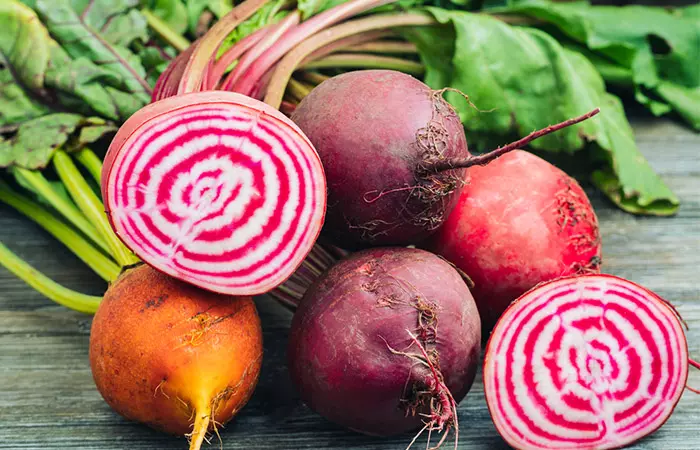
- Chioggia, which is an Italian variety with distinct red and white striped flesh.
- Formanova, which is a cylindrical beet that grows up to 8 inches long.
- Golden, which is carrot-colored but still tastes like the beet. The greens of beets are especially delicious.
- Detroit Dark Red, which is a popular variety that grows 2 ½ to 3 inches in diameter. This one can be grown in a wide variety of soils and temperature conditions.
- Lutz Green Leaf, which is an unusual variety that grows up to four times the size of normal beets.
Beets are usually red. This can largely be attributed to betalain, a pigment that beets contain. There is another variety of beets – the white beets. These are cooked the same way as their red cousins, but without the issues with the color (which might stain your dress at times). Another variety is golden beets, where the root is pale orange. The flesh is of a similar color – and it is firm, healthy, and sweet. Golden beets are low in calories and extremely rich in fiber. They also are great sources of potassium and calcium.
Beets are also consumed in the form of crystals – the juice of beets is concentrated into soluble crystals, which can be mixed with another drink and taken. Sugarbeet is another root crop that flourishes in temperate climates, with the growing season usually five months long.
In the following section, we will explore the varied nutritional profile of beetroots.
Beets Nutrition Facts
One cup of beetroot (136 grams) has 58 calories. It also contains 13 grams of carbohydrates, 2 grams of protein, and 4 grams of fiber. Following are the other nutrients in beets (1):
- 22 mg of calcium
- 1 mg of iron
- 31 mg of magnesium
- 54 mg of phosphorus
- 442 mg of potassium
- 47 mg of zinc
- 44 mg of manganese
- 6 mg of vitamin C
- 175 mg of betaine
- 148 mcg of folate
- 45 IU of vitamin A
The only way to enjoy the goodness of these nutrients is to pick the right beets. In the following section, we will discuss how to select the right beets and how to store them properly.
Selection And Storage
Yes, you can get a packet of fresh beets from the market. The question is – how do you separate the best from the rest?
Selection
- Pick only those beets that are small and firm and have a deep maroon coloring.
- They must also have unblemished skin and bright leaves (with no signs of wilting, and they can be moist too).
- Go for hard and firm roots – this means the beets are fresh as they are recently plucked.
- Avoid beets with scales or spots. The taproot must be attached.
- If a beet is large and has a hairy taproot, keep it aside. The hairs are an indication of roughness and age. You don’t want them.
- Your beets must be 1 ½ to 2 inches in diameter. A beet any larger means it will grow a tough and woody center. You don’t want that, either. Smaller beets are best. They are tender and sweet.
Storage
- Trim the leaves 2 inches from the root as soon as you are home. Otherwise, the leaves will sap the moisture from the root. Also, do not trim the tail.
- Store the leaves in a plastic bag separately and use them within two days.
- You can refrigerate beets just like any other vegetable – in a tightly sealed plastic bag. Doing this can keep them fresh for at least 7 to 10 days in the refrigerator.
- Cooked or canned beets can also be refrigerated up to one week.
But you can’t keep eating beets the whole day, right? Or can you? The dosage is very important.
How Much Beetroot To Eat Per Day
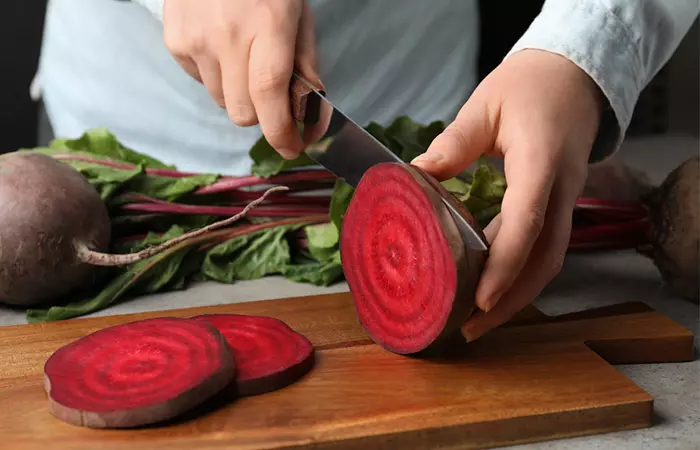
Though there is no specified dosage, beetroot is generally dosed based on the nitrate content. The ideal nitrate content is 6.4 to 12.8 mg of nitrates for every 1 kg of beetroot.
Otherwise, there is no specific way of telling the number of beets that could be harmful. To keep it simple – one serving (1 cup, which equals to 136 grams) of beets per day should do.
If you want to know the dosage of beetroot juice powder, the packaging can help. Even otherwise, you wouldn’t need a higher dose – at least not as much as one serving of beets.
As for beet juice, the dosage is about 200 to 250 ml per day.
How To Incorporate Beetroot Into Your Diet
Beetroot can be prepared in various ways, including roasting, boiling, or steaming. Roasting enhances its natural sweetness, while boiling may retain more nutrients. Additionally, raw beets can be grated into salads for a crunchy texture and vibrant color. Here are some of the ways to add it to your diet:
- Consume it as beet juice. You can juice the beet greens as well, as they also contain good amounts of potassium and magnesium.
- You can shred raw beets on your salad. Grate them finely.
- You can also bake beets. But ensure you wear something to cover your hands to avoid ‘red hands.’
Amy Fox, Certified Nutritionist and Certified Functional Food Professional, says, “To get the most from beets, you should eat them raw or juice them since cooking reduces their nutrient value.”
Andreanna Rainville, RN, NC, adds, “Juicing beets may make some of the nutrients more easily absorbable, but it also removes the fiber which is important for digestion and other health benefits. It is also important to note that when beetroot is juiced, some of the most beneficial compounds in beets, such as nitrates, are also removed. It is good to have variety in your diet, and consuming beets in different forms, such as roasted, boiled, or even raw, can give you the benefits of a different set of nutrients.”
The following recipes can also help.
Fresh Beet Recipes
Here are a few ways to eat beets.
1. Russian Beetroot Soup Recipe (Borscht)
What You Need
- 1 kg beef chuck with the bone, well rinsed
- 8 cups of cold water
- 1 large onion and carrot, both coarsely chopped (with the carrot peeled as well)
- 1 coarsely chopped celery rib
- 1 sachet of stock
- 450 grams of beets and 3 large carrots, all trimmed and peeled
- ¼ cabbage, shredded
- 2 large peeled and sliced potatoes
- 2 large diced onions
- 2 tablespoons of tomato paste
- 1 tablespoon of sugar
- Salt and pepper, as required
- Sour cream and lemon wedges, as required
Directions
- For the beef stock, first, combine the beef and water in a stockpot over medium heat. Bring it to a boil, reduce the heat, and simmer gently. Skim the top surface for about 30 minutes, or until the impurities no longer appear.
- Add the onion, carrot, and celery to the pot. Also, tie the stock sachet to the pot handle and drop it into the pot. Cover the pot and simmer for an hour or until the meat falls off the bone.
- Remove the stock sachet. Transfer the beef to a bowl and pull the meat off the bones. Chop the meat into bite-sized pieces and set them aside. Strain the stock into a clean and heatproof container, all the while pressing on the vegetables to obtain maximum flavor. You can then discard the vegetables.
- To make the soup, cook the beets and carrots in the beef stock. Cook for about 45 minutes or until tender. Remove from broth, let it cool and then shred it coarsely. Set aside.
- As the beets and carrots cool, you can add cabbage, onion, and potatoes to the broth. Bring it to a boil and simmer for 20 minutes (covered) or until tender. Add beets and carrots and tomato paste and salt and pepper to taste.
- Finally, serve in warmed bowls with a dollop of sour cream and a lemon wedge.
2. Beetroot Salad Recipe
What You Need
- 5 to 6 medium beets
- ¼ cup of extra virgin olive oil
- 2 tablespoons of white wine vinegar
- ½ teaspoon of honey
- ½ teaspoon of Dijon mustard
- ½ teaspoon of salt
- 1 finely chopped large shallot
- 1 finely chopped celery stalk
- Freshly ground pepper, for taste (as desired)
Directions
- Preheat the oven to 204o. Divide the beets between two pieces of foil and bring the edges together. Crimp to make packets. Roast until the beets are tender or for about 1 ¼ hours. Unwrap the beets and let them cool.
- While the beets cool down, whisk the oil, vinegar, honey, mustard, salt, and pepper in a small bowl to make the dressing.
- After the beets have cooled down, remove the skins. Cut them into ½-inch cubes and place them in a large bowl. Add shallot and celery and the dressing. Toss to coat properly.
- Serve chilled or at room temperature.
3. Beetroot Smoothie Recipe
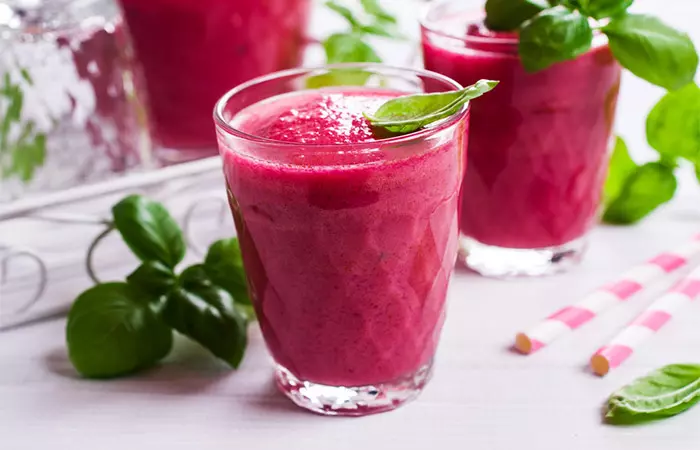
What You Need
- 1 red beet, small, trimmed and peeled
- 1 large apple, cored
- 1 stalk of celery
- 1 cup of almond milk
- 1 cup of carrot juice
- 2/3 cup of frozen sliced peaches
- 1-inch piece of ginger, peeled and sliced
Directions
- Roughly chop the beet, apple, and celery.
- Add all the ingredients to a blender and mix until smooth. You can also taste the smoothie to ensure if the sweetness is to your liking. If not, you can add a little more of the fruit.
- Serve chilled. You can store the smoothie in a jar for up to 2 days.
There are a few other delectable beet juices you can try –
- Simple green and red beet juice
- Beet-ginger juice
- Beet and pineapple delight
Not just with respect to benefits, but also in terms of ‘being cool,’ beets are way ahead. Like the super cool beet facts you will read now.
Super Cool Beetroot Facts
- Beetroot was initially cultivated around 2000 BC in the Mediterranean region.
- When harvested, the entire plant is edible.
- The biggest beet in the world was owned by a Dutchman, and it weighed over 70 kilos.
- Beetroot juice is one of the richest natural sources of antioxidants and dietary nitrates.
- You can use beet juice to measure acidity. The juice turns pink when added to an acidic solution, and turns yellow when added to an alkali.
- There is a belief persisting in several cultures that a man and a woman eating from the same beetroot are bound to fall in love with each other.
- Boiling beets in water and massaging the water into your scalp each night can be a great cure for dandruff.
- Eating too much of beets can turn your urine red. Even more of the vegetable can turn your stools red. (Guess this is not so super cool!)
 Trivia
TriviaOther Uses Of Beetroot
You can use beets to dye your hair. If you are a hairstyle/hair color aficionado, this could be for you.
We have seen how to include beets in your diet. But how about including them in your beauty routine as well?
- One routine you can try is the beet, rose, and black tea hair rinse. The procedure is simple. Take one cup of beet juice, and half a cup each of rose water and black tea. Mix them and massage it directly on your scalp. Work this treatment from the ends to the roots of your hair. Leave it on for about 10 minutes and then rinse well. The black tea in the rinse is loaded with tannins (that help in the dyeing process) and antioxidants (that are great for hair and scalp health).
- You can also use beet green juice for the same purpose as beets. Beet greens are powerful cleansers. They cleanse the blood and kidneys – which is another reason they are a must-have. However, ensure you consume it in moderation.
- Beetroot powder has its uses too. You can use the powder in your soups for some variation in taste. You can also add the powder to curries or gravies to up their nutritional value. Use the powder as a dry coating to snacks or food colorant.
- You can also make your own organic powder blush, minus the chemicals. Make a simple hair dye by mixing beet powder with henna and applying it to your tresses.
All you need to do is wash the beetroot thoroughly first. Boil, bake, or steam it. Cut the tops of the beet and discard them. Shred the beet. Next, dehydrate the beetroot (a temperature of 60o C is fine). You can use a dehydrator or an oven for this purpose (it must take 8-10 hours). Dehydrating in the sun is a bad idea as the process might take days.
Once done, grind the dehydrated beet in a food processor. Your beet powder is ready!
A couple of very important questions. One, beet juice or cooked beets – which one to go for?
Betalains and other nutrients are usually lost in the cooking process. In this context, juicing is better. But cooked beets usually contain more fiber than beet juice – as much of the fiber is filtered in the juicing process. The best way to go about it is by having beet juice with the pulp.
And two, beet juice or beet supplement – which is better?
In terms of comfort, beet supplement is probably better because all you need to do is pop a pill (or add the powder to your food, if it’s a powdered supplement). Also, a beet supplement is far lower in calories as compared to beet juice. But the beet supplement might also be lower in carbs and fat (which could be good news) and protein (bad news).
In terms of nutrients or nitrates, both are similar. And in terms of sugar, the juice is on the higher end. But otherwise, there is no drastic difference between the two. If you are more on the move and literally can’t make time to prepare juice out of beets, go for the supplement, else opt for the juice.
This was about the health benefits of beets. Let us now take a look at the side effects.
Beetroot Side Effects
- May Cause Kidney Stones
Beets and beet greens are high in oxalate, and as per research, such foods can reduce the absorption of calcium (49). Consuming high amounts of oxalate can also cause kidney stones (50).
- Pregnancy And Breastfeeding
There is not enough information in this regard, especially with respect to using beets in large medicinal amounts. Stay safe and stick to food amounts.
- Drug Interactions
Vitamin K can interact with warfarin, an anticoagulant medication. Though the amount of vitamin K in beets is not so high to interfere with warfarin, it is not the case with beet greens as they are high in vitamin K (51). Even drinking an excess amount of beetroot juice may cause serious health issues. Therefore, it’s always better to learn about the side effects of beetroot juice beforehand.
While beetroot can have some side effects when consumed in excess, there are also widespread misconceptions that need to be addressed. Scroll down to know what those are.
Common Misconceptions About Beetroot
- Beetroot Juice Improves Athletic Performance For Everyone Equally
Although beetroot juice has nitrates that can improve endurance and oxygen flow, each person will experience its effects differently (52). While some people may notice little to no difference, others may benefit greatly.
- Beetroot Can Be Used As A Natural Substitute For Medical Treatments
While beetroot may support overall health, serious medical conditions require proper medical guidance and treatment.
- Beetroot Causes Health Problems, Which Is Indicated By Changes In Stool And Urine Color
The red or pinkish hue in the urine or stool after consuming beetroot is a result of its natural pigments, and it is not a medical condition.
- Cooking Beetroot Destroys All Its Nutrients
While some heat-sensitive nutrients, such as vitamin C, may be reduced while cooking beetroot, many other beneficial substances, including antioxidants, are not impacted (53). Griddling, microwaving, and baking may be the best methods of cooking for the least nutrient loss, while pressure-cooking and boiling can lead to considerable losses.
Infographic: Top 5 Reasons To Have Beetroot
Beetroots are packed with beneficial nutrients that can aid your health, especially your circulatory system. These dark red delights are excellent sources of iron that promote the production of red blood cells as well as healthy blood circulation in general. It has ample benefits for those at risk of developing cardiovascular disorders.
Check out the infographic below to learn more about the major health advantages of having beetroot for your heart and body. Illustration: StyleCraze Design Team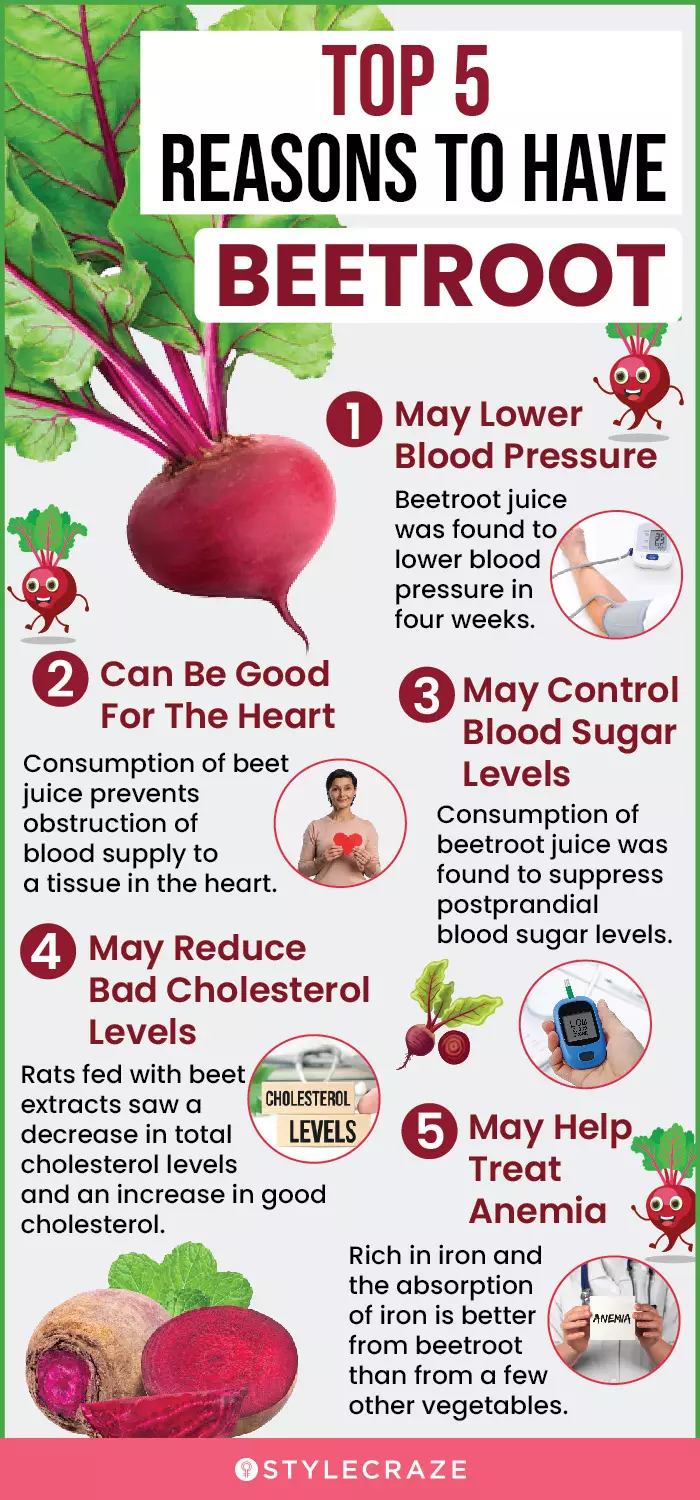
Beetroots are loaded with essential vitamins and minerals that help treat many ailments. They may delay the signs of premature aging, lower blood pressure, promote a healthy pregnancy, reduce the risk of heart disease, and reduce cancer risk. They are available in different varieties, and you can easily incorporate them into your diet.
However, excess consumption of beetroot may cause kidney stones and interactions with blood-thinning medications. Hence, consume them in moderation.
Frequently Asked Questions
Who should not take beetroot?
Eva De Angelis, Dietitian Nutritionist, says, “Beetroots are generally considered safe. However, because of its high sugar content, I do not suggest beetroot juice to those with diabetes.”
Is it okay to eat beetroot daily?
You can safely eat beets a few times a week. If you are eating daily, it’s fine, but do so in limited quantities. You can have beet greens in larger quantities as well (but keep in mind the oxalate content).
Can you eat beets raw?
Yes,you can eat beets without cooking them. Make sure you wash them properly.
How do I eat beets?
You can eat them raw or have them roasted with goat cheese. You can also include them in a salad to get all the health benefits of beets. Refer to the recipes in this post.
Are pickled beets good?
They are more than good. In fact, Olympians use pickled beets for faster recovery. Pickled beets contain sodium that helps prevent muscle cramps. They are also rich in magnesium and potassium. They are good for the heart, give you energy, and prevent fatigue and loss of appetite. But since they are high in sodium, exercise caution, especially if you have hypertension issues.
How many calories are in beetroot?
A100 grams of beets contains 43 calories. They also are naturally sweet, and you can try replacing the sugar in your foods with beetroot shavings. This might help with your weight loss or weight management goals, although there is no research to prove it either.
Can you eat beet skin?
Yes. Baby beets are especially easy to eat as their skin is tender. The skin is replete with fiber.
Can you eat beet stems?
Yes. They are full of nutrients. But since they are extremely fibrous, you probably need to soften them a bit by cooking. Sometimes, beet stems can be too woody to eat, which is when they can go along with the stock veggies.
Are canned beets healthy?
Yes, canned beets seem to be as nutritious and healthy as fresh beets. They offer good amounts of fiber and folate and also retain the original flavor.
The only consideration is that canned beets contain more salt than fresh ones. Hence, if you rinse canned beets before eating them, you can reduce the amount of sodium by as much as 40%. Also, the process of canning destroys the bacteria, which is why food preservatives are not added to canned beets. Compared to canned beets, beetroot juice benefits the body more as it has less salt content.
Are beets good for babies?
Yes. The best time to introduce beets to your baby is when (s)he is 8 to 10 months old. If you are concerned about nitrates, you can either boil or steam the beets.
Limit to 1 to 2 teaspoons of beets until your baby is one year old. Later, you can increase the amount gradually.
More importantly, do the 4-day test. You must do this test before introducing any new food to your baby. You must introduce only one food at a time. Introduce beets and wait for 4 days. If there is no symptom of any allergy, you can give them to your baby regularly.
Beets benefit your baby in numerous ways – they reduce the risk of anemia, improve digestion, and offer various other essential nutrients.
Can beet greens be eaten raw?
Yes, but it is better to include them in salads.
Illustration: Important Health Benefits Of Beetroot + Nutrition Facts
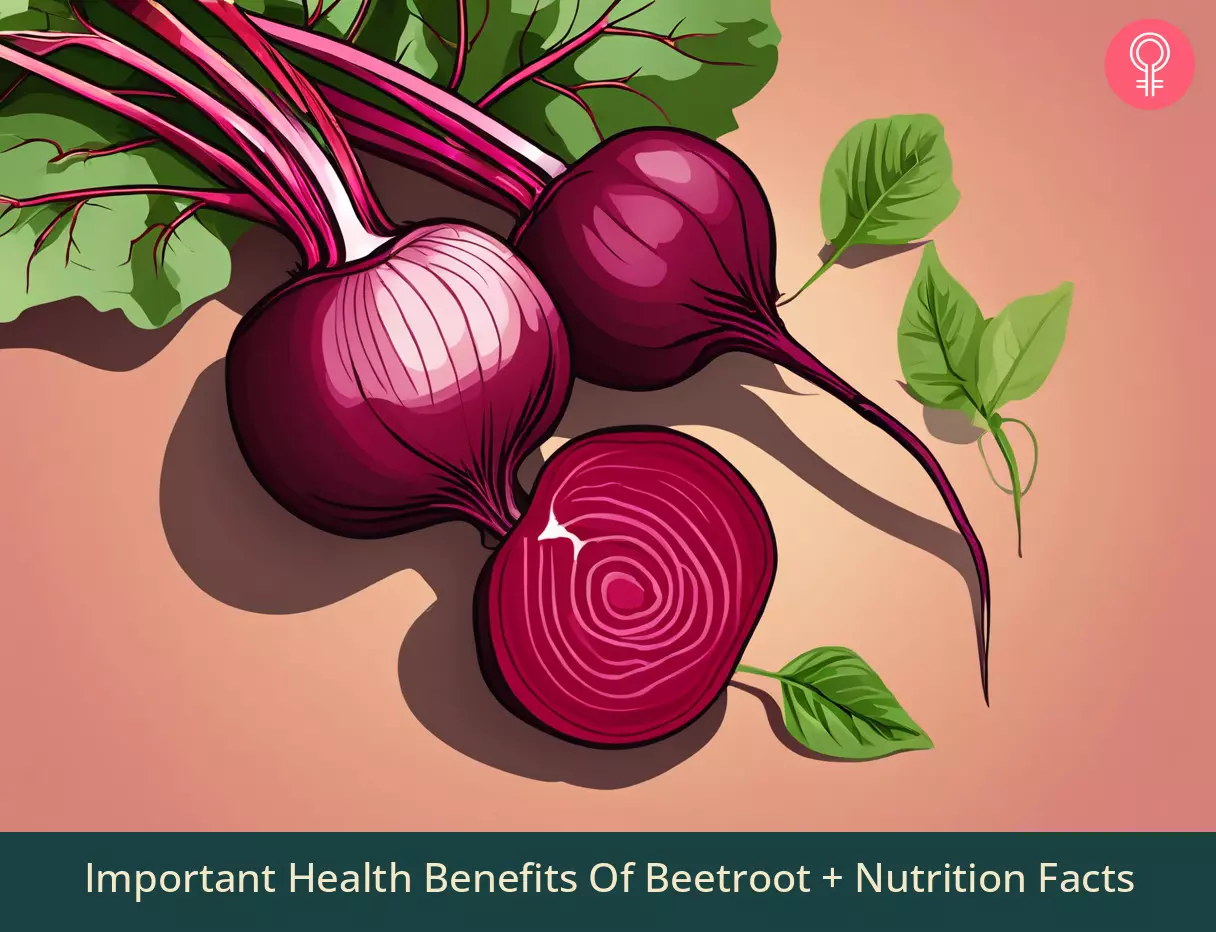
Image: Stable Diffusion/StyleCraze Design Team
This colorful and hearty vegetable can negatively affect your health in various ways. Check out this video for thepotential side effects of beetroot before including it in your diet.
Personal Experience: Source
StyleCraze's articles are interwoven with authentic personal narratives that provide depth and resonance to our content. Below are the sources of the personal accounts referenced in this article.
i. I Drank Beetroot Juice for 21 DAYS and THIS Happened! 😧… 4 Takeawayshttps://www.youtube.com/watch?v=hUDvHOGFNGg
References
Articles on StyleCraze are backed by verified information from peer-reviewed and academic research papers, reputed organizations, research institutions, and medical associations to ensure accuracy and relevance. Read our editorial policy to learn more.
- Beets, raw, U.S. Department of Agriculture, FoodData Central.
https://fdc.nal.usda.gov/fdc-app.html#/food-details/169145/nutrients - Discovering the link between nutrition and skin aging, DermatoEndocrinology, US National Library of Medicine, National Institutes of Health.
https://www.ncbi.nlm.nih.gov/pmc/articles/PMC3583891/ - Antioxidant and in vitro anticancer activities of phenolics isolated from sugar beet molasses, BMC Complementary and Alternative Medicine, US National Library of Medicine, National Institutes of Health.
https://www.ncbi.nlm.nih.gov/pmc/articles/PMC4561420/ - Chemoprevention of lung and skin cancer by Beta vulgaris (beet) root extract, Cancer letters, US National Library of Medicine, National Institutes of Health.
https://pubmed.ncbi.nlm.nih.gov/8620443/ - What is vitamin A and why do we need it?, Community Eye Health Journal, US National Library of Medicine, National Institutes of Health.
https://www.ncbi.nlm.nih.gov/pmc/articles/PMC3936685/ - The Roles of Vitamin C in Skin Health, Nutrients, US National Library of Medicine, National Institutes of Health.
https://www.ncbi.nlm.nih.gov/pmc/articles/PMC5579659/ - Dietary interventions for fetal growth restriction – therapeutic potential of dietary nitrate supplementation in pregnancy, The Journal of Physiology, US National Library of Medicine, National Institutes of Health.
https://pubmed.ncbi.nlm.nih.gov/28090634/ - Folic acid and neural tube defects, Genetics in Medicine, Nature Journals.
https://idp.nature.com/transit?redirect_uri=https%3A%2F%2Fwww.nature.com%2Farticles%2Fgim200554&code=980bf41f-5f2d-409b-9c9c-b5c02b85e23b - Dietary nitrate provides sustained blood pressure lowering in hypertensive patients: a randomized, phase 2, double-blind, placebo-controlled study, Hypertension, US National Library of Medicine, National Institutes of Health.
https://www.ncbi.nlm.nih.gov/pmc/articles/PMC4288952/ - Effect of beetroot juice on lowering blood pressure in free-living, disease-free adults: a randomized, placebo-controlled trial, Nutrition Journal, US National Library of Medicine, National Institutes of Health.
https://www.ncbi.nlm.nih.gov/pmc/articles/PMC3545899/ - Inorganic nitrate and beetroot juice supplementation reduces blood pressure in adults: a systematic review and meta-analysis, Journal of Nutrition, US National Library of Medicine, National Institutes of Health.
https://pubmed.ncbi.nlm.nih.gov/23596162/ - One Week of Daily Dosing With Beetroot Juice Improves Submaximal Endurance and Blood Pressure in Older Patients With Heart Failure and Preserved Ejection Fraction, JACC, Heart Failure, US National Library of Medicine, National Institutes of Health.
https://pubmed.ncbi.nlm.nih.gov/26874390/ - Beetroot juice reduces infarct size and improves cardiac function following ischemia–reperfusion injury: Possible involvement of endogenous H2S, Experimental Biology and Medicine, US National Library of Medicine, National Institutes of Health.
https://www.ncbi.nlm.nih.gov/pmc/articles/PMC4935262/ - Effects of nitrate supplementation via beetroot juice on contracting rat skeletal muscle microvascular oxygen pressure dynamics, Respiratory physiology & neurobiology, US National Library of Medicine, National Institutes of Health.
https://www.ncbi.nlm.nih.gov/pmc/articles/PMC3753182/ - Cytotoxic effect of the red beetroot (Beta vulgaris L.) extract compared to doxorubicin (Adriamycin) in the human prostate (PC-3) and breast (MCF-7) cancer cell lines, Anti-cancer agents in medicinal chemistry, US National Library of Medicine, National Institutes of Health.
https://pubmed.ncbi.nlm.nih.gov/21434853/ - Chemoprevention of lung and skin cancer by Beta vulgaris (beet) root extract, Cancer letters, US National Library of Medicine, National Institutes of Health.
https://pubmed.ncbi.nlm.nih.gov/8620443/ - Beetroot-Carrot Juice Intake either Alone or in Combination with Antileukemic Drug ‘Chlorambucil’ As A Potential Treatment for Chronic Lymphocytic Leukemia, Open access Macedonian journal of medical sciences, US National Library of Medicine, National Institutes of Health.
https://www.ncbi.nlm.nih.gov/pmc/articles/PMC4877878/ - Betanin-Enriched Red Beetroot (Beta vulgaris L.) Extract Induces Apoptosis and Autophagic Cell Death in MCF-7 Cells, Phytotherapy Research, US National Library of Medicine, National Institutes of Health.
https://pubmed.ncbi.nlm.nih.gov/26463240/ - Evaluation of pectin binding of heavy metal ions in aqueous solutions, Chemosphere, US National Library of Medicine, National Institutes of Health.
https://pubmed.ncbi.nlm.nih.gov/10204240/ - Liver-protecting effects of table beet (Beta vulgaris var. rubra) during ischemia-reperfusion, Nutrition, US National Library of Medicine, National Institutes of Health.
https://pubmed.ncbi.nlm.nih.gov/17234508/ - Beetroot juice protects against N-nitrosodiethylamine-induced liver injury in rats, Food and Chemical Toxicology, US National Library of Medicine, National Institutes of Health.
https://pubmed.ncbi.nlm.nih.gov/22465004/ - Beetroot juice and exercise: pharmacodynamic and dose-response relationships, Journal Of Applied Physiology, US National Library of Medicine, National Institutes of Health.
https://pubmed.ncbi.nlm.nih.gov/23640589/ - Whole beetroot consumption acutely improves running performance, Journal of the Academy of Nutrition and Dietetics, US National Library of Medicine, National Institutes of Health.
https://pubmed.ncbi.nlm.nih.gov/22709704/ - Beetroot Juice Improves On-Water 500 M Time-Trial Performance, and Laboratory-Based Paddling Economy in National and International-Level Kayak Athletes, International journal of sport nutrition and exercise metabolism, US National Library of Medicine, National Institutes of Health.
https://pubmed.ncbi.nlm.nih.gov/25202886/ - Impact of dietary nitrate supplementation via beetroot juice on exercising muscle vascular control in rats, ResearchGate.
https://www.researchgate.net/publication/232256397_Impact_of_dietary_nitrate_supplementation_via_beetroot_juice_on_exercising_muscle_vascular_control_in_rats - Combined Dietary Nitrate and Exercise Intervention in Peripheral Artery Disease: Protocol Rationale and Design, JMIR Research Protocols, US National Library of Medicine, National Institutes of Health.
https://www.ncbi.nlm.nih.gov/pmc/articles/PMC5645641/ - Improvement of hypertension, endothelial function and systemic inflammation following short-term supplementation with red beet (Beta vulgaris L.) juice: a randomized crossover pilot study, Journal of human hypertension, US National Library of Medicine, National Institutes of Health.
https://pubmed.ncbi.nlm.nih.gov/27278926/ - Beetroot (Beta vulgaris L.) extract ameliorates gentamicin-induced nephrotoxicity associated oxidative stress, inflammation, and apoptosis in rodent model, Mediators of inflammation, US National Library of Medicine, National Institutes of Health.
https://pubmed.ncbi.nlm.nih.gov/25400335/ - Beet Root Juice: An Ergogenic Aid for Exercise and the Aging Brain, The journals of gerontology, US National Library of Medicine, National Institutes of Health.
https://www.ncbi.nlm.nih.gov/pmc/articles/PMC5861951/ - Acute effect of a high nitrate diet on brain perfusion in older adults, Nitric Oxide, US National Library of Medicine, National Institutes of Health.
https://www.ncbi.nlm.nih.gov/pmc/articles/PMC3018552/ - Protective effect of dietary supplements against streptozotocin-induced Alzheimer’s disease in mice, Journal of Herbmed Pharmacology.
https://herbmedpharmacol.com/Article/jhp-38081 - Acute effect of a high nitrate diet on brain perfusion in older adults, National Library of Health.
https://pubmed.ncbi.nlm.nih.gov/20951824/ - Dietary nitrate modulates cerebral blood flow parameters and cognitive performance in humans: A double-blind, placebo-controlled, crossover investigation, Physiology & Behavior, US National Library of Medicine, National Institutes of Health.
https://pubmed.ncbi.nlm.nih.gov/26037632/ - Sugar beet fiber in formula diet reduces postprandial blood glucose, serum insulin and serum hydroxyproline, European journal of clinical nutrition, US National Library of Medicine, National Institutes of Health.
https://pubmed.ncbi.nlm.nih.gov/9505164/ - Effects of a beetroot juice with high neobetanin content on the early-phase insulin response in healthy volunteers, Journal of Nutritional Science, US National Library of Medicine, National Institutes of Health.
https://www.ncbi.nlm.nih.gov/pmc/articles/PMC4153083/ - Degradation of colour in beetroot (Beta vulgaris L.): a kinetics study, Journal of Food Science and Technology, US National Library of Medicine, National Institutes of Health.
https://www.ncbi.nlm.nih.gov/pmc/articles/PMC4190260/ - Dietary fibre in foods: a review, Journal of Food Science and Technology, US National Library of Medicine, National Institutes of Health.
https://www.ncbi.nlm.nih.gov/pmc/articles/PMC3614039/ - Diet and Health: Implications for Reducing Chronic Disease Risk. National Research Council (US) Committee on Diet and Health, US National Library of Medicine, National Institutes of Health.
https://www.ncbi.nlm.nih.gov/books/NBK218764/ - Effect of Beta vulgaris L. on cholesterol rich diet-induced hypercholesterolemia in rats, ResearchGate.
https://www.researchgate.net/publication/260321511_Effect_of_Beta_vulgaris_L_on_cholesterol_rich_diet-induced_hypercholesterolemia_in_rats - Improving Iron Status Through Diet, The Application of Knowledge Concerning Dietary Iron Bioavailability in Human Populations, Pennsylvania State University.
https://pdf.usaid.gov/pdf_docs/pnacb908.pdf - Laboratory evidence for the hematopoietic potential of Beta vulgaris leaf and stalk extract in a phenylhydrazine model of anemia, Brazilian Journal of Medical and Biological Research, US National Library of Medicine, National Institutes of Health.
https://www.ncbi.nlm.nih.gov/pmc/articles/PMC6190212/ - Nothing Boring About Boron, Integrative Medicine, US National Library of Medicine, National Institutes of Health.
https://www.ncbi.nlm.nih.gov/pmc/articles/PMC4712861/ - Beetroot (Beta vulgaris L.) Extract Ameliorates Gentamicin-Induced Nephrotoxicity Associated Oxidative Stress, Inflammation, and Apoptosis in Rodent Model, Mediators of Inflammation, US National Library of Medicine, National Institutes of Health.
https://www.ncbi.nlm.nih.gov/pmc/articles/PMC4221885/ - Carotenoids and Food Preparation: The Retention of Provitamin A Carotenoids in Prepared, Processed, and Stored Foods, Universidade Estadual de Campinas, Brazil.
https://pdf.usaid.gov/pdf_docs/Pnacb907.pdf - The potential benefits of red beetroot supplementation in health and disease, Nutrients, US National Library of Medicine, National Institutes of Health.
https://pubmed.ncbi.nlm.nih.gov/25875121/ - NO-Rich Diet for Lifestyle-Related Diseases, Nutrients, US National Library of Medicine, National Institutes of Health.
https://www.ncbi.nlm.nih.gov/pmc/articles/PMC4488823/ - Silicon as Versatile Player in Plant and Human Biology: Overlooked and Poorly Understood, Frontiers in Plant Science, US National Library of Medicine, National Institutes of Health.
https://www.ncbi.nlm.nih.gov/pmc/articles/PMC4641902/ - Betaine supplementation decreases plasma homocysteine in healthy adult participants: a meta-analysis, Journal of Chiropractic Medicine, US National Library of Medicine, National Institutes of Health.
https://www.ncbi.nlm.nih.gov/pmc/articles/PMC3610948/ - The use of calcium and vitamin D in the management of osteoporosis, Therapeutics and Clinical Risk Management, US National Library of Medicine, National Institutes of Health.
https://www.ncbi.nlm.nih.gov/pmc/articles/PMC2621390/ - Nutritional Management of Kidney Stones (Nephrolithiasis), Clinical Nutrition Research, US National Library of Medicine, National Institutes of Health.
https://www.ncbi.nlm.nih.gov/pmc/articles/PMC4525130/ - Effect of medication timing on anticoagulation stability in users of warfarin (the INRange RCT): study protocol for a randomized controlled trial, Trials, US National Library of Medicine, National Institutes of Health.
https://www.ncbi.nlm.nih.gov/pmc/articles/PMC4973068/ - What Is in Your Beet Juice? Nitrate and Nitrite Content of Beet Juice Products Marketed to Athletes
https://pmc.ncbi.nlm.nih.gov/articles/PMC8512783/ - Influence of cooking methods on antioxidant activity of vegetables
https://pubmed.ncbi.nlm.nih.gov/19397724/
Read full bio of Monica Auslander Moreno
- Andreanna Rainville, RN, NC, is a registered nurse and nutritional counselor with 12 years of experience in chronic illness, pain management, and chronic infections. She focuses on genetics and methylation evaluation and support, nutraceutical medicine, diet therapy, immunotherapy, chronic illness and infection, detoxification, fertility, mold, pain management, and pediatrics (and is currently finishing her MAPS (Medical Academy for Pediatrics with Special Needs) fellowship.
 Andreanna Rainville, RN, NC, is a registered nurse and nutritional counselor with 12 years of experience in chronic illness, pain management, and chronic infections. She focuses on genetics and methylation evaluation and support, nutraceutical medicine, diet therapy, immunotherapy, chronic illness and infection, detoxification, fertility, mold, pain management, and pediatrics (and is currently finishing her MAPS (Medical Academy for Pediatrics with Special Needs) fellowship.
Andreanna Rainville, RN, NC, is a registered nurse and nutritional counselor with 12 years of experience in chronic illness, pain management, and chronic infections. She focuses on genetics and methylation evaluation and support, nutraceutical medicine, diet therapy, immunotherapy, chronic illness and infection, detoxification, fertility, mold, pain management, and pediatrics (and is currently finishing her MAPS (Medical Academy for Pediatrics with Special Needs) fellowship. - Amy Fox is a Certified Nutritionist and Certified Functional Food Professional with 3 years of experience. She is also the founder of Food and Mood Lab. She has been researching the connection between food and mood for decades and started one-on-one coaching three years ago.
 Amy Fox is a Certified Nutritionist and Certified Functional Food Professional with 3 years of experience. She is also the founder of Food and Mood Lab. She has been researching the connection between food and mood for decades and started one-on-one coaching three years ago.
Amy Fox is a Certified Nutritionist and Certified Functional Food Professional with 3 years of experience. She is also the founder of Food and Mood Lab. She has been researching the connection between food and mood for decades and started one-on-one coaching three years ago. - Eva De Angelis is a Dietitian Nutrionist from Argentina. She specializes in food and nutrition education, and healthy cooking. She has a Bachelor’s degree in Human Nutrition and Dietetics from ISalud University, a postgraduate certificate in Nutrition, Gastronomy, and Health, a culinary diploma, and an intermediate-level technical degree in Food Science.
 Eva De Angelis is a Dietitian Nutrionist from Argentina. She specializes in food and nutrition education, and healthy cooking. She has a Bachelor’s degree in Human Nutrition and Dietetics from ISalud University, a postgraduate certificate in Nutrition, Gastronomy, and Health, a culinary diploma, and an intermediate-level technical degree in Food Science.
Eva De Angelis is a Dietitian Nutrionist from Argentina. She specializes in food and nutrition education, and healthy cooking. She has a Bachelor’s degree in Human Nutrition and Dietetics from ISalud University, a postgraduate certificate in Nutrition, Gastronomy, and Health, a culinary diploma, and an intermediate-level technical degree in Food Science.
Read full bio of Ravi Teja Tadimalla
Read full bio of Arshiya Syeda
Read full bio of Aparna Mallampalli






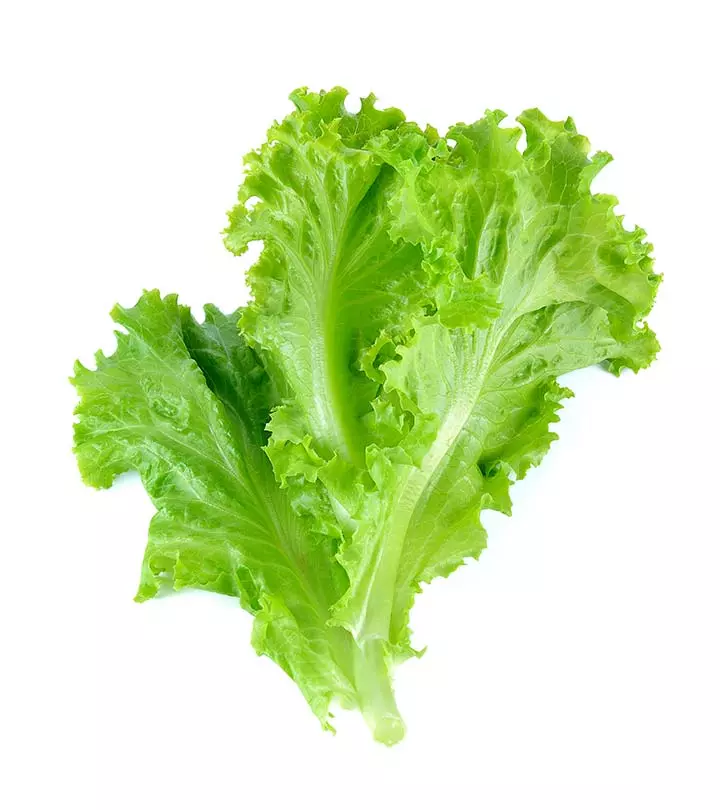
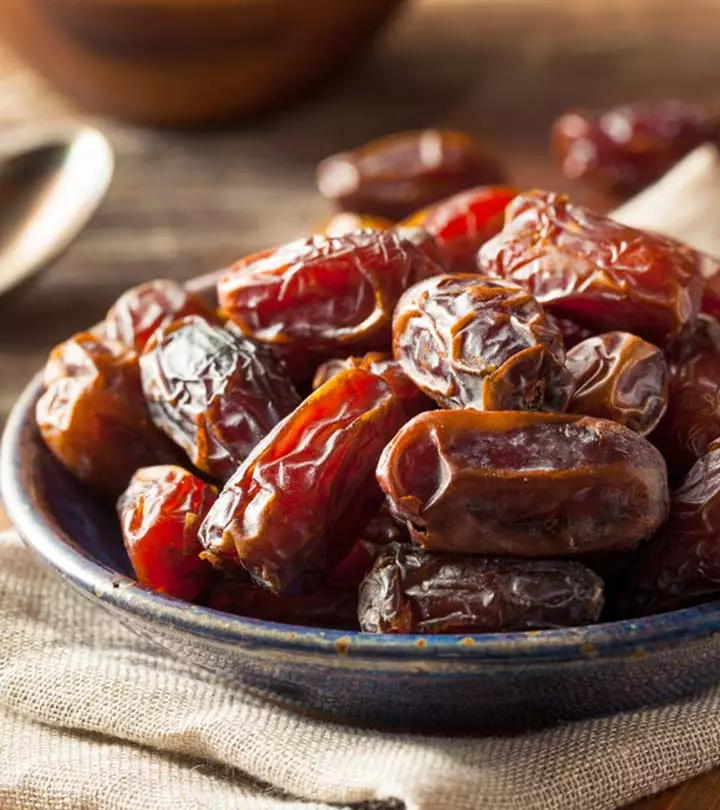
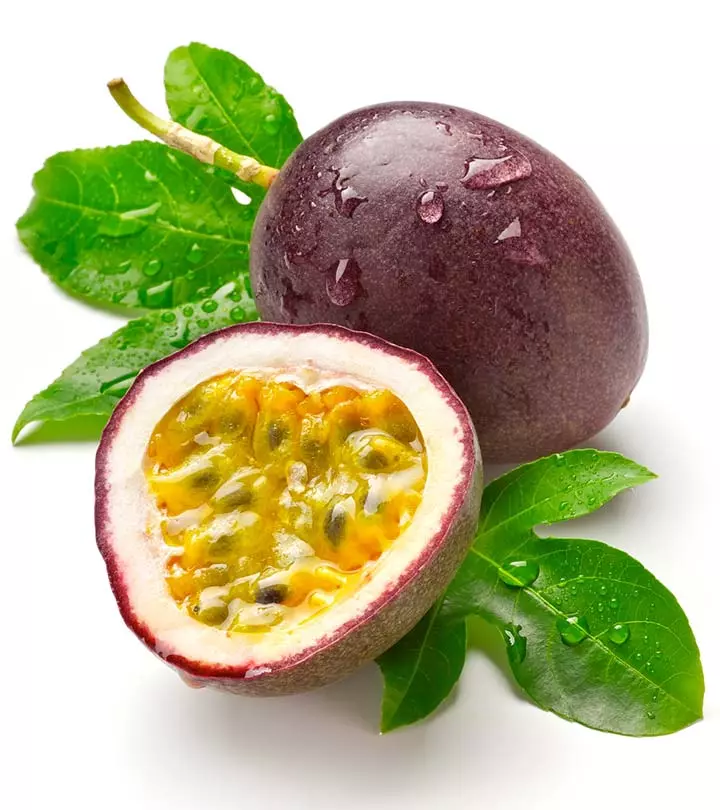
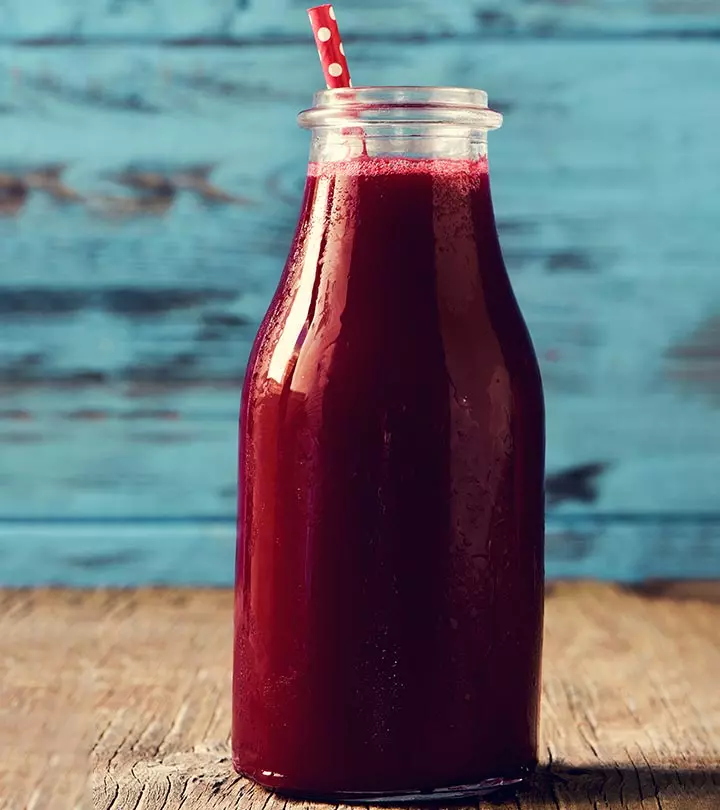
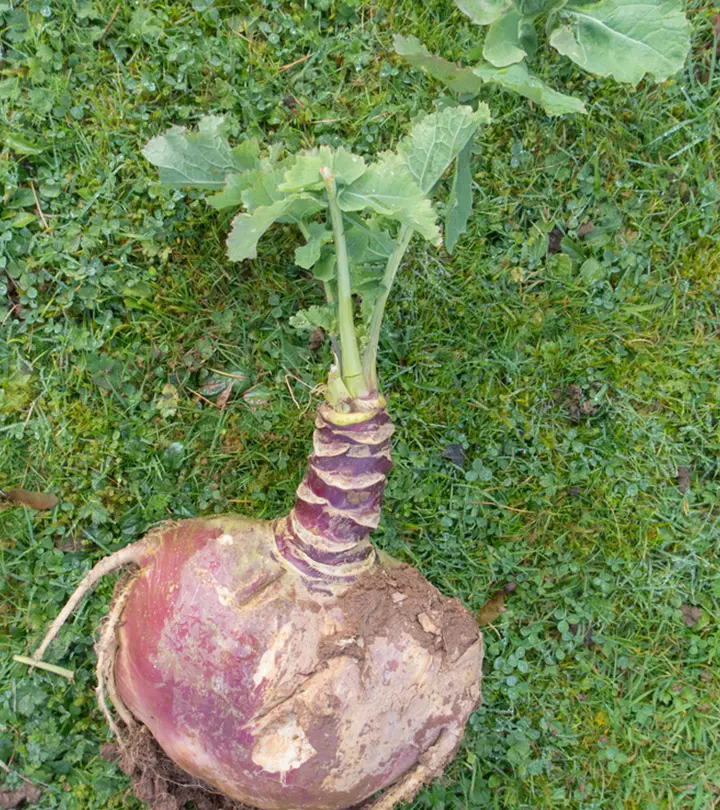
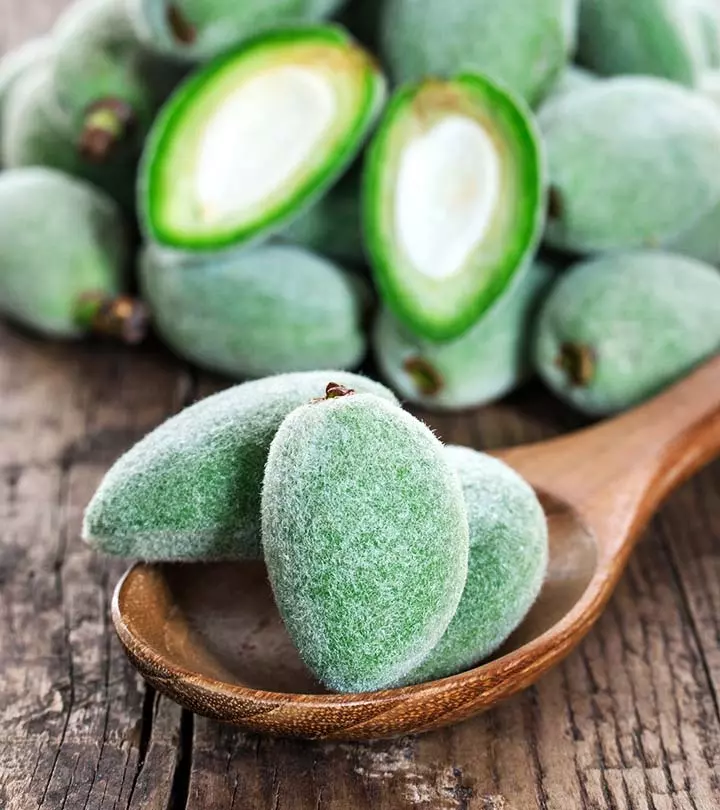
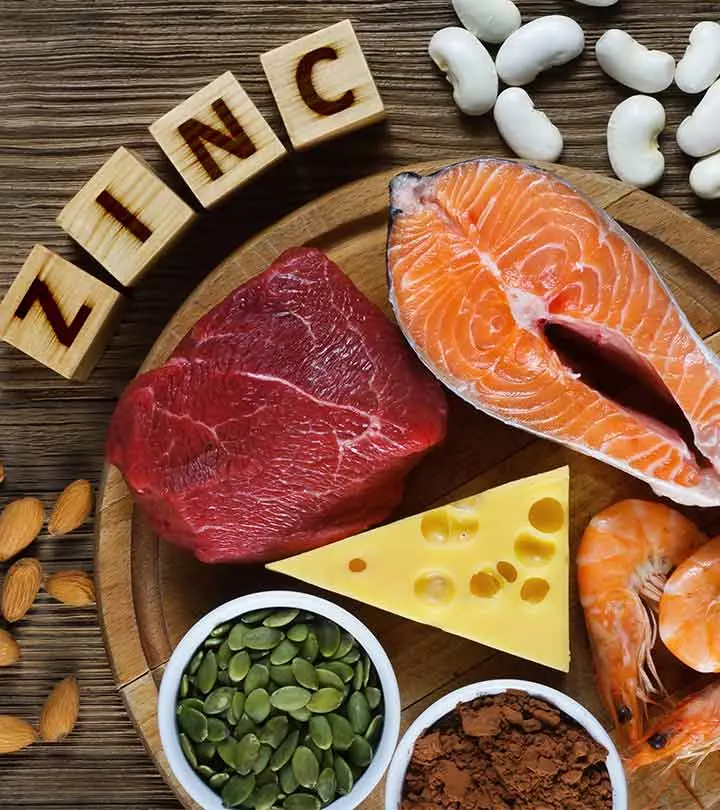

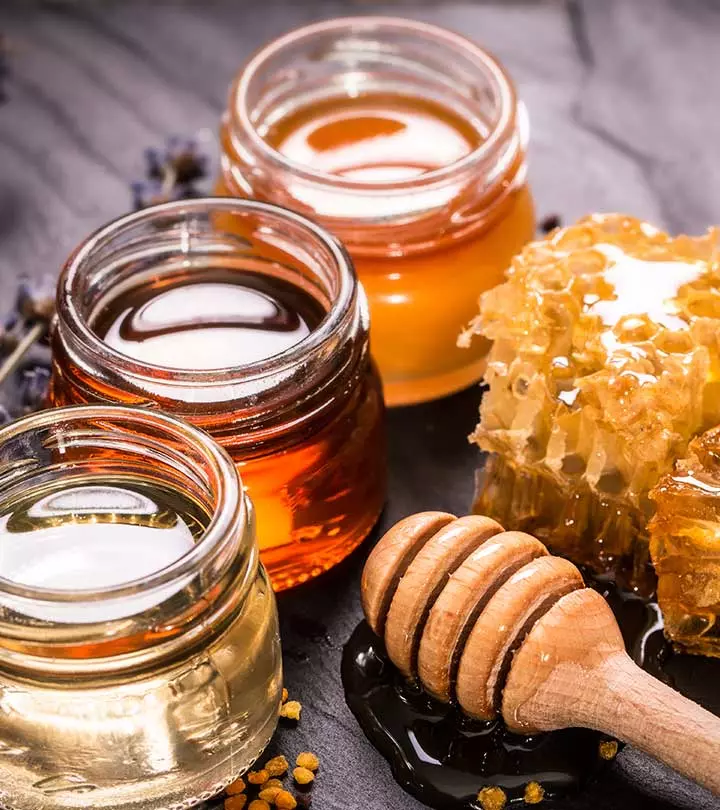

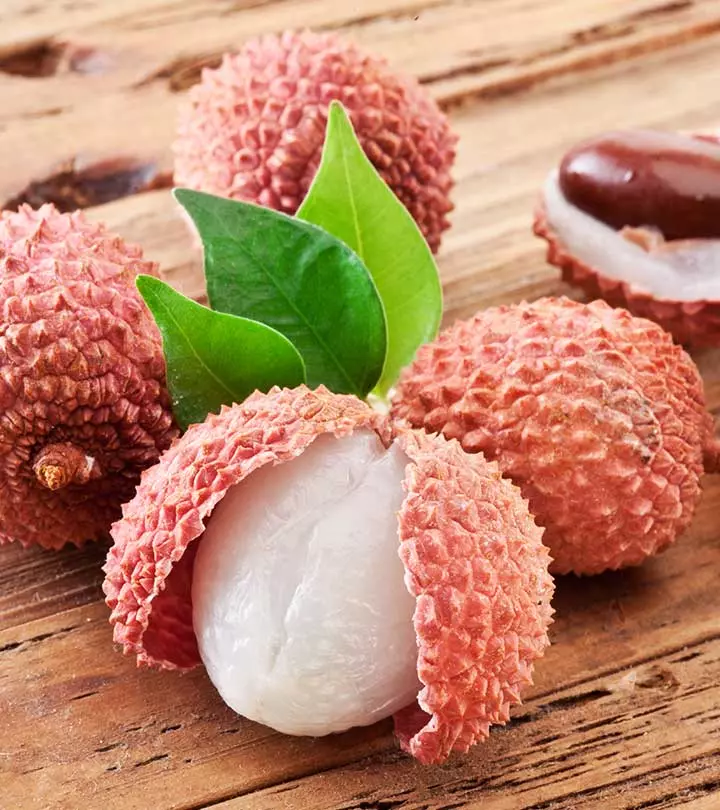
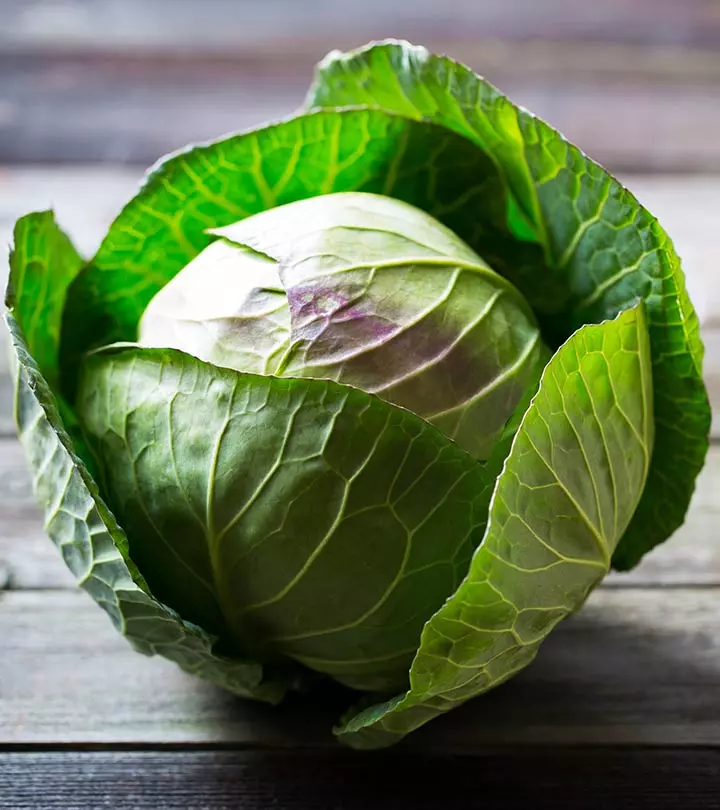
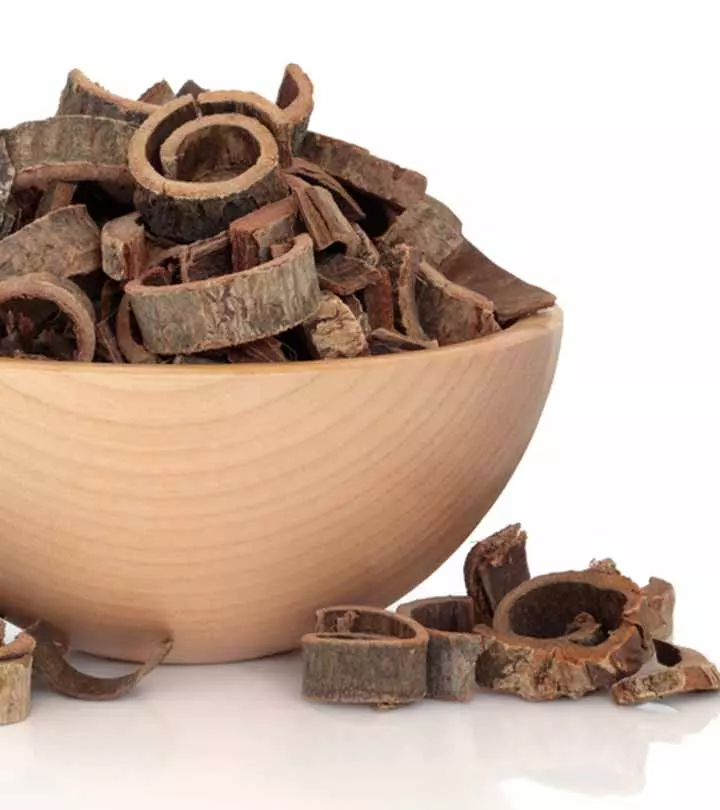
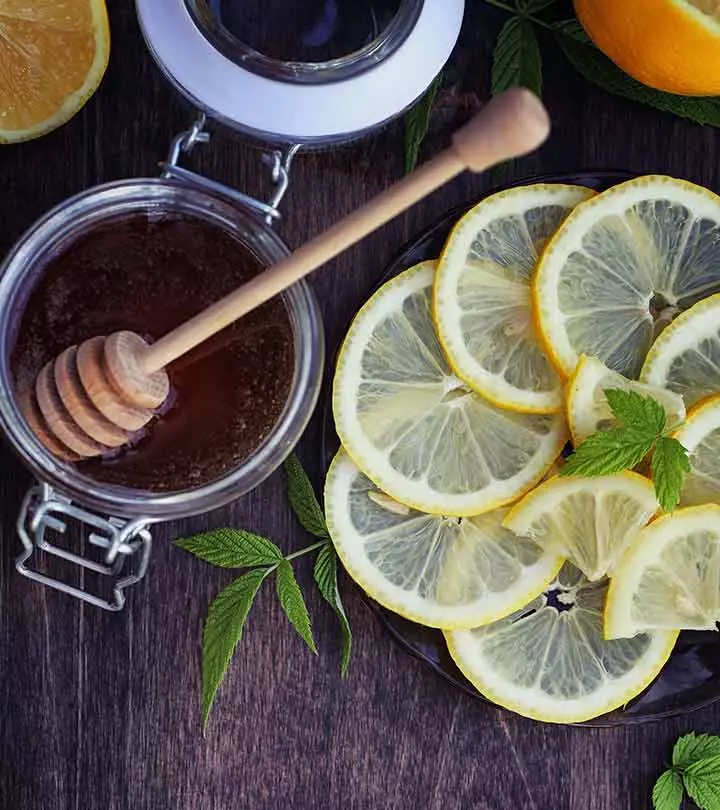
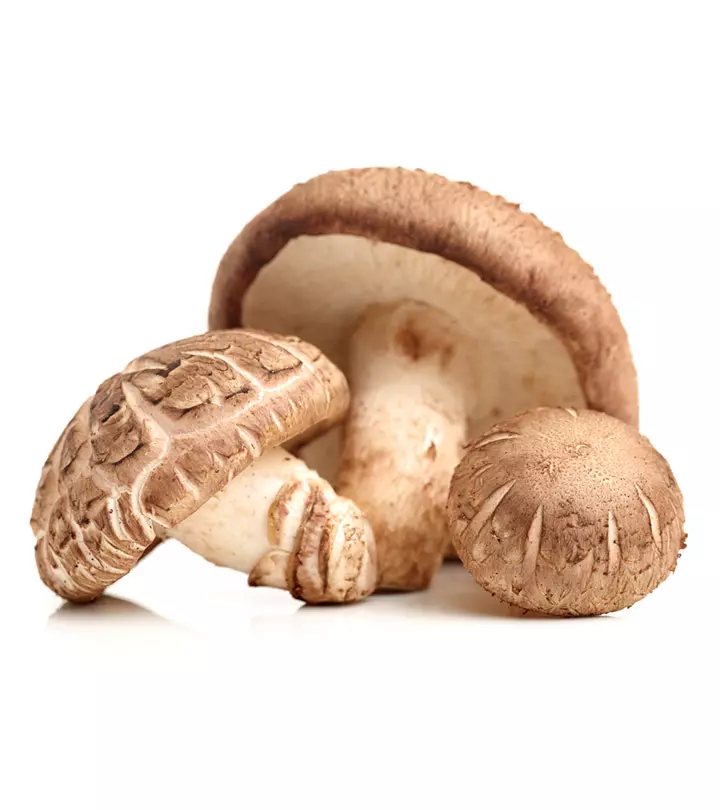
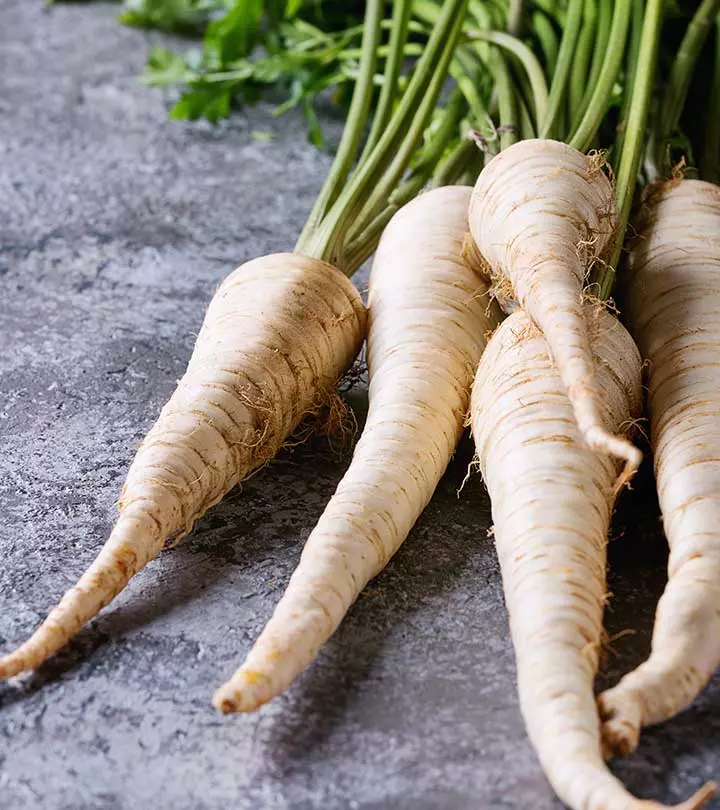
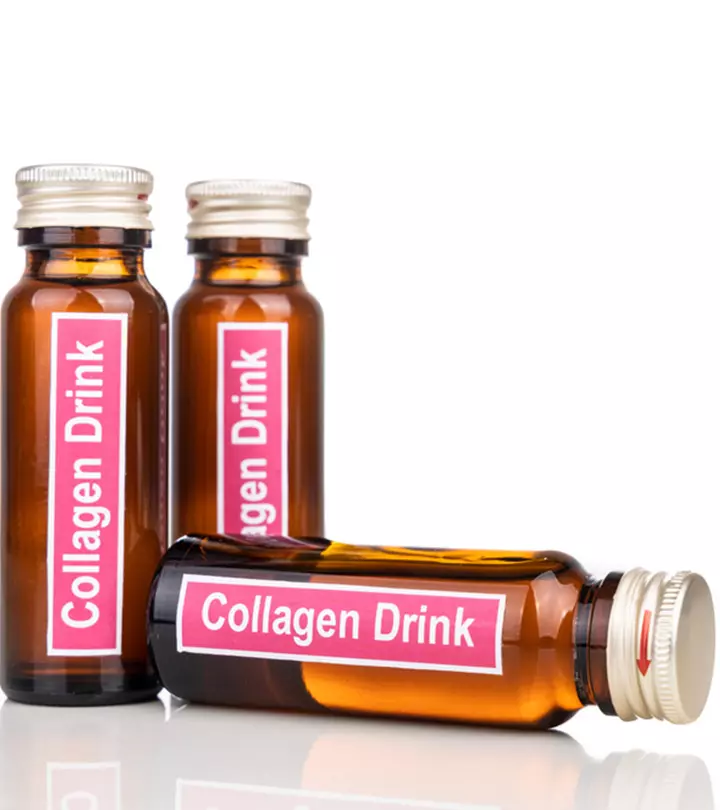
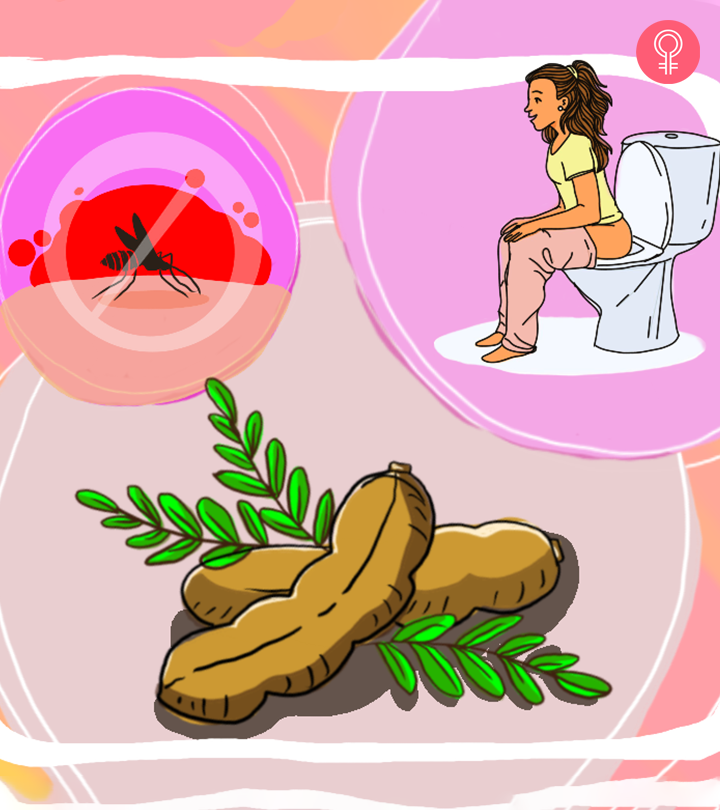
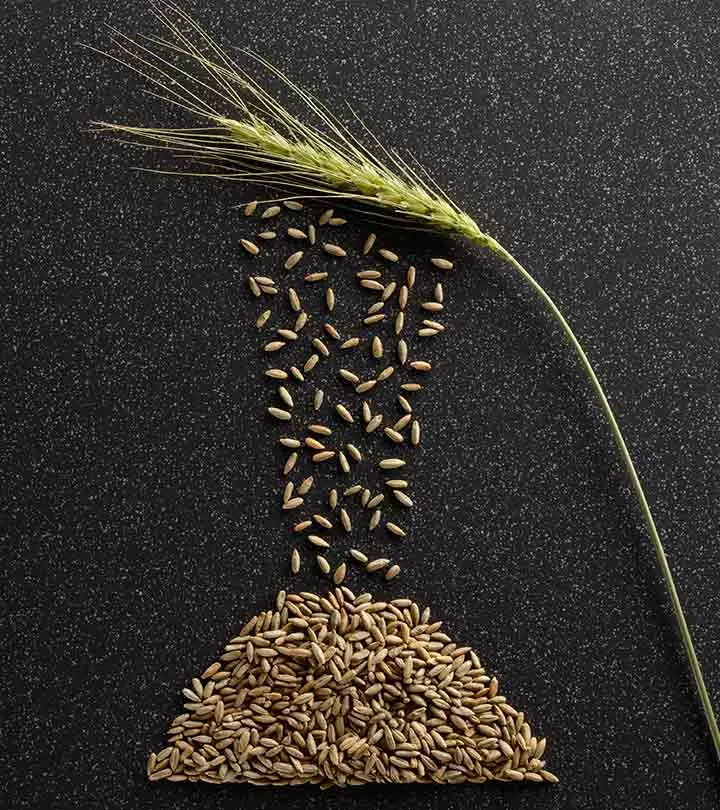
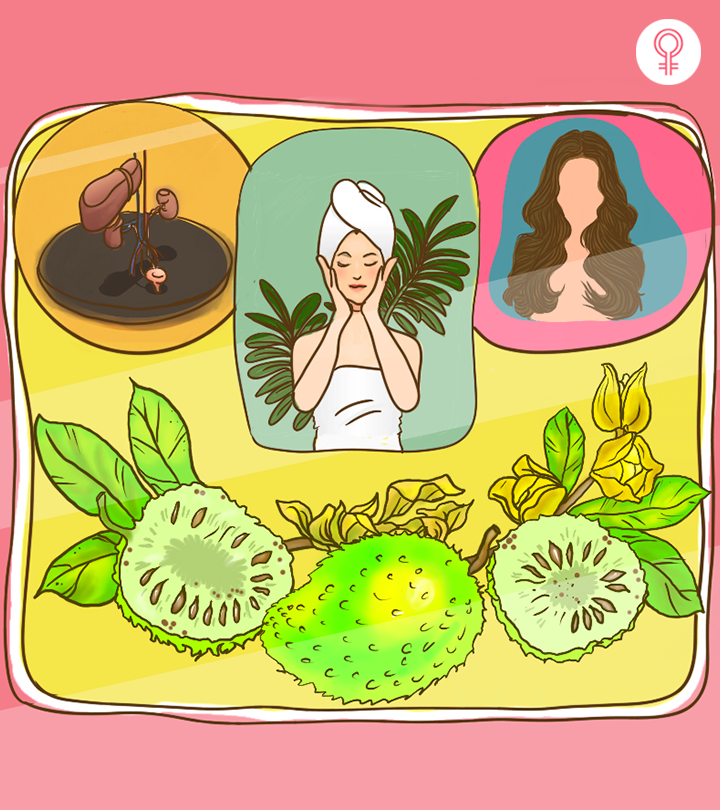
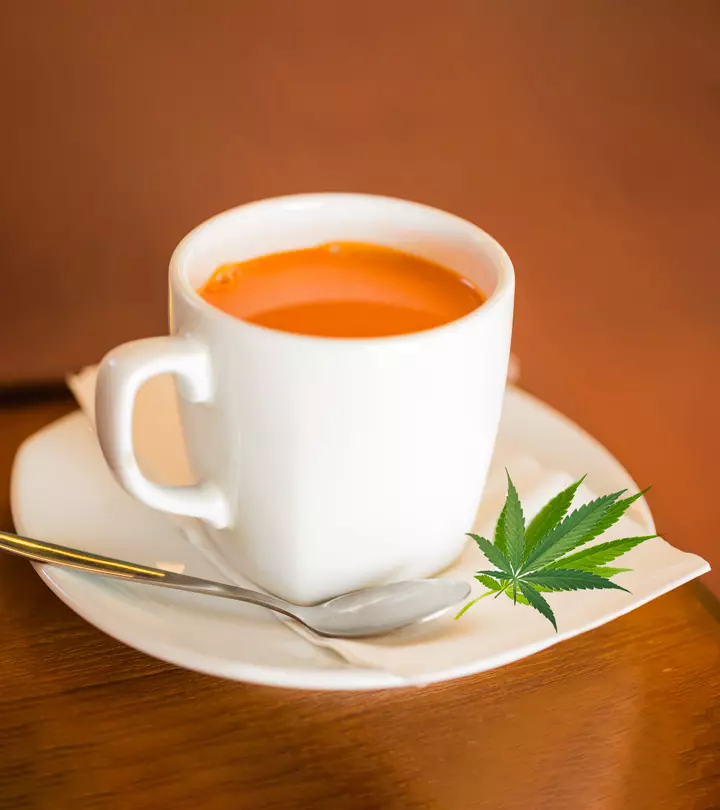
Community Experiences
Join the conversation and become a part of our empowering community! Share your stories, experiences, and insights to connect with other beauty, lifestyle, and health enthusiasts.